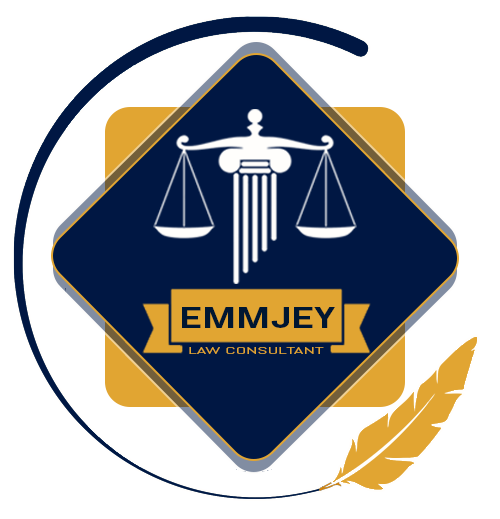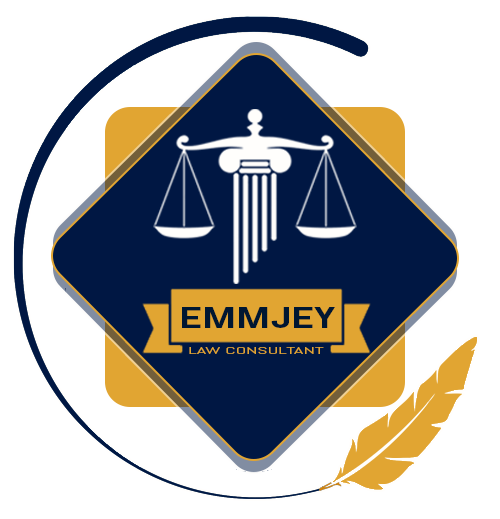We are Experts in a lot of Legal Areas
-
Civil & Criminal Littigation
-
Corporate Laws
-
Service, Employment & Labour
-
Real Estate Laws
-
Taxation & Customs
-
White Collar Crime
-
Intellectual Property
-
Family Laws
-
Criminal Laws
-
Rent Matter
-
Cyber Crime Laws
-
Banking Laws
-
Immigration Laws
-
Consumer Laws
-
Environmental Laws
-
Constitutional Matter
-
International Trade Laws
-
WTO Consultations
-
Alternative Dispute Resolutions (ADR)
-
Arbitrators and Re-conciliators
-
International, National and Corporate Agreement Writers
-
Advisory and Consultancy Services
-
Human rights and Public Welfare Litigation
-
Harrasment Laws


The experience of our lawyers in contentious commercial and civil litigation spans over a number of years. Not only do we regularly represent multinationals and local corporations before the Supreme Court, High Courts of Pakistan and the subordinate District Courts, but also counsel Government functionaries on complex constitutional matters.
The spectrum of our litigation practice ranges from property law disputes, real estate and construction matters, constitutional petitions, white-collar crime, contractual disputes, intellectual property matters, employment disputes, taxation and customs duty assessments and liabilities, domestic and family disputes, shipping and admiralty, telecommunications, as well as media.
We provide services in different forums of law, Corporate, Taxation, Intellectual Property Rights, (Copyright, Trade Mark & Patent), Services matters, Constitutional matters (Writ Petitions, Public Interest Litigation’s) Family matters, Immigration & Citizenship Rights, Special Courts and Tribunals, Naib, FIA, FBR matters.


We provide legal advice and representation to our domestic and international clients in relation to all matters pertaining to employment and labour laws, and we also provide advice in matters relating to the complex legalities of human resource management.
Our services include advice in relation to employment, termination, regulatory requirements and dispute resolution. We continue to represent companies, employees and civil servants before the Labour Courts, Service Tribunals, High Courts and Supreme Court of Pakistan.
In addition, we advise businesses of all sizes, i.e. from start-ups to international Fortune 500 companies on the different facets of employee benefit programs, including EOBI and Provident Funds.


We understand the dynamics of real estate from all legal tangents. Our clients include property developers, public and private owners, operators, investors, contractors, sub-contractors, suppliers, lenders and real estate investment trusts.
We have extensive experience in advising clients on real estate development, construction and conveyancing matters, and have successfully represented parties at all legal forums in relation to property ownership, rent and construction disputes.
In addition, we offer legal advice and due diligence for clients investing in real estate, drafting legal documentation for property acquisition and construction as well as negotiating terms of appointments on behalf of construction companies in relation to infrastructure construction projects. Our team handles conveyancing, mutations and registrations on behalf of our clients before various land registries and registrars of assurances.


We advise and represent a number of clients on contentious tax and customs related matters, before government authorities as well as the High Courts and Supreme Court of Pakistan. Our practice covers advice and representation in matters involving corporate taxation, sales tax, income tax, property tax, custom duties, coercive recovery by the Federal Board of Revenue and other local government taxes.
Our tax practice accommodates businesses of all sizes, as well as individuals who are seeking guidance and counseling pertaining to all aspects of provincial and federal taxation. Our advocates have helped numerous individuals and business entities to manage their taxation figures, as we know taxes dictate vital business decisions, including where to locate, how to structure, who to hire, etc. Our services include tax planning considerations in structuring corporate mergers, acquisitions and leveraged buy-outs, partnership issues, tax issues in commercial loans, leases and work-outs, real estate tax issues, tax matters of concern to international clients with business operations in Pakistan or the overseas, and tax litigation, etc.


Our firm has extensive experience in all aspects of criminal prosecution/defense from investigation to trial and beyond, as well as in advising businesses and individuals in relation to the legal strategies which they need to take in order to mitigate the loss/damage.
Our firm’s advocates have advised and represented several high-profile individuals, both at the High Courts and Supreme Court of Pakistan that had matters that involved complex legal and evidentiary issues. We can deal with a wide array of issues in this area, including but not limited to National Accountability Bureau (NAB), money laundering, international banking fraud and illegal property transactions.


Intellectual Property refers to creations of the intellect for which a monopoly is assigned to designated owners by law. Intellectual Property Rights (IPRs) are the protections granted to the creators of IP, and include Trademarks, Copyrights, Patents, Industrial Design Rights, and in some jurisdictions, trade secrets. It is important to note that even artistic works including music and literature, as well as inventions, words, phrases, symbols, and designs can all be protected as intellectual property.
There is nothing more deflating than to see someone claiming your intellectual property/invention/discovery as theirs. Also, the risk of online theft and data breach has increased tenfold since the dawn of the digital paradigm. In light of the above statement, our attorneys offer a comprehensive range of legal services for the identification, development, acquisition and protection of intellectual property assets and related technology. Our advocates have represented various companies and individuals in relation to their IPRs and infringements, and have successfully obtained favorable orders from the Honorable Courts on behalf of our clients.


Family law deals with family-related issues and domestic relations. Most family law practices focus on representing clients in a divorce and the issues related to divorce such as the division of marital property, child custody and support, and alimony. Family lawyers also draft prenuptial and postnuptial agreements and litigate related matters. Some family lawyers represent victims or perpetrators of domestic violence in civil protection order proceedings and defend clients accused of domestic violence in criminal proceedings. Adoption and guardianship, juvenile delinquency, and child abuse and neglect are also areas of family law.
While there are some family lawyers who have developed a particular specialty, such as adoption law, most family lawyers have expertise in a number of practice areas. Moreover, family lawyers must have a wide range of legal skills as they draft and negotiate contracts, pleadings, and other legal documents; litigate contested matters; counsel clients on their legal rights and options; and attempt to resolve disputes. They also must have exceptional interpersonal skills and be adept in managing emotionally volatile situations.


Here you may find information as to criminal law in Pakistan. Our dedicated team of professional lawyers best assists their clients as to criminal litigation in Pakistan
Criminal Law is an extreme field of practice coverning all those aspects that entail crime as its factor. Every act or omission that violates a command, derives its force from legislature or from authority – either political or religious – that has absolute sway over the matters of state is considered to be a crime. This is the reason that state stands as a prosecutor against the alleged culprit. The main intention of criminal law is to maintain the sway of state in all matters involving acts or omissions: no act or omission that challenges the sway of the state can be allowed by the criminal law of the state.
Pakistan has a very detailed criminal law that is though outdated to some extent but it tends to cover all aspects that do constitute a crime. To understand the criminal law in Pakistan one needs to understand the socio cultural phenomena of this country also. Most of the criminal law that has been prevailing in Pakistan was introduced by the British Empire when India was a colony and Pakistan was part of it. Even then a care was taken to understand the social conditions and criminal law was tried to be conditioned according to the cultural circumstances of the colony. This is the reason that it was willfully accepted by India and Pakistan both after their freedom from British Empire. Code of Criminal Procedure (V of 1898) that was implemented in colony is still largely the prescribed criminal procedure followed by the courts in Pakistan. Similarly the Penal Code (XLV of 1860) that was introduced in colony is still largely followed in shape of Pakistan Penal Code.


The Pakistan Law Commission has taken notice of the fact that there is a general complaint about inordinate delays in the disposal of rent cases and implementation of the Courts’ orders passed in those cases. On the one hand there are some tenants who are interested in retaining the possession of the rented premises and for that purpose exploit the procedural loop-holes in the Rent Laws to prolong the litigation, while, on the other, there are certain landlords who, in order to get the maximum amount of rent, try to eject one tenant after the other with the intention of increasing the rent of the premises substantially on each such occasion.


The leading Law Firm of Cyber crime cases is Proficient Lawyers, who have dealt with numerous Cyber Crime cases lately.
With the growth of the internet, wired and wireless networks, web cameras, and the easy availability of information, smart phones, and tablets, opportunities for computer-based crime are growing, and law enforcement is devoting increasing resources to these cases. Commonly referred to as Cyber Crime, these violations involve activity where a computer or network is the source, tool, target, or place of a crime.
Also on the rise are false allegations of cyber stalking, snooping, and improper access to personal information. Too often, “online relationships” that result in hurt feelings lead to allegations of impropriety and sometimes criminal prosecutions. Due to the commerce clause of the federal constitution, nearly any crime involving a computer can be brought in federal court, as well as in state court.


Here you may find information on banking law in Pakistan. Our dedicated team of professional lawyers may best assists their clients in resolving banking law issues in Pakistan.
We deal in establishment, incorporation and share capital in Banking Companies, Cooperative Banks and Financial Institutions, Transactions of Banking Business, Suspension of Business and Winding up of Banking Business, Recovery of Loans, Mortgage Matters, Landlord & Tenant, Debtor & Creditor, Contracts, Bankruptcy, Bank Secrecy Matters and Negotiable Instruments etc.
We also deal with the matters relating to borrowing, raising or taking up of money, the lending or advancing of money either upon or without security, all kinds regarding bills of exchange, hundis, promissory notes, coupons, drafts, bills of lading, railway receipts, warrants, debentures, certificates including participation term certificates, modaraba certificates and musharika certificates etc and dealing in bullion and species, buying and selling of foreign exchange including foreign bank notes, the acquiring, holding, issuing on commission, underwriting and dealing in stock, funds, shares, debentures, bonds, obligations and securities, all kinds of investments, the receiving of all kinds of bonds, scripts or valuable on deposits.


Proficient Lawyers was established in 1978 but its immigration section was created in 2001, with the sole purpose of helping people and our clients to achieve their migration goals with maximum ease, by commencing interactive immigration services. Along with the excitement of changes, migration to a new country can sometimes be a daunting process filled with challenges. We seek to minimize these challenges, particular by the confusion and confrontation i.e. often associated with the visa application process. Our goal is to allow you the freedom to focus on the excitement of migrating to another country.
Our services extends right around the world, with association of emigration consultants and lawyers for providing emigration services for entry to USA, UK, Canada, European Countries, Middle East, Australia and Newzeland etc. We provide a wide range of services for many visas types and categories. Our global emigration services are specifically tailored to assist our clients in traveling or migration to another country. Our qualified migration consultants are ready and willing to provide our clients with valuable emigration advice.


Consumer protection law or consumer law is considered as an area of law that regulates private law relationships between individual consumers and the businesses who are selling those goods and services.
The idea of consumer protection laws was firstly adopted in Pakistan by the Federal Government in 1995 when The Islamabad Consumer Protection Act, 1995 was passed. Later on The Provincial Governments followed this pattern and the provincial assembly of Khyber Pakhtunkhwa passed The Khyber Pakhtunkhwa Consumer Protection Act, 1997. The provincial assembly of Baluchistan passed The Balochistan Consumer Protection Act, 2003, the provincial assembly of Punjab passed The Punjab Consumers Protection Act, 2005 and provincial assembly of Sindh passed a Consumer Protection Bill in 2015 to protect the rights of consumers. The basic purpose of making these Acts, a part of our legislation, is to establish a prosperous society where all consumers may feel themselves secured and where there is no room exists for fraudulent acts.
After the approval of these Acts, district consumer courts are established for all the districts of Islamabad, Punjab, Khyber Pakhtunkhwa and Balochistan while the enactment in Sindh province is in process, so that people may easily access to these courts for the protection of their rights. Along these district consumer courts a network of district consumer protection councils has been spread in all four provinces of Pakistan. These councils are established to create awareness among masses about their basic rights and benefits as a consumer.


We at Proficient Lawyers understand the technical aspects of Environmental Law including toxicology, epidemiology, hydrogeology, biology and engineering. Many of attorneys have formal technical training in the area of Environmental Science. In addition, we consult with Environmental Analysts-both in-house and outside the firm. We also draw on the multidisciplinary resources of attorneys of the extended law team of the firm. We have played an important role in some of the most complex and influential cases of recent time.
The law firm, in competition with other firms, is a leader in the provision of civil law services to citizens, companies, local authorities and government bodies. Services in this field are provided, in particular, in civil, labour and family law relationships. Thanks to their long experience in this field, some attorneys lecture and publish on it. The law firm provides its clients with both advice and comprehensive solutions. It drafts legal documents, contracts dealing with legal relations between clients and agreements settling disputed issues, always attempting to find the best solution for the client which gives him the greatest legal certainty. For this reason, the law firm also represents estate agents, whom it provides with legal services during conveyancing and agreements resolving relations between property owners. As such relations are very wide-ranging, the skills of the law firm’s employees are constantly being perfected.


Constitutional law is a body of law which defines the role, powers, and structure of distinct organisational units within a governmental setup, namely, the executive, the parliament or legislature, and the judiciary; as well as the basic rights of citizens. You may find the info here about the constitutional law, law of writs and jurisdiction of courts in Pakistan.
Constitution is not an ordinary statute made in ordinary legal procedure. It is the creation of a Constitutional Act and therefore the sanctity of a Constitution is much higher than any statute made by the legislature. A Statute is an act to fulfill a particular social, political or economic need and so its efficacy of importance does not endure so long. But a Constitution is made to endure with the avowed purpose to fulfill the aspiration of the people who made it. It is by the people, for the people and a documentation of the cherished good of the people. Constitutions are not conceived and acted in vacuum, and as an instrument of Government. It is always intended the condition and as it is itself conditioned by the circumstance and environment of the community whose activities seek it to regulate. It is never internal and differs from other laws only in respect of general national purpose, it has in view. Constitution, written – unwritten has a philosophy of its own: it is the means of ordering the life of people. This way we should have good understanding of our constitution.


Generally, international trade law includes the rules and customs governing trade between countries. International trade lawyers may focus on applying domestic laws to international trade, and applying treaty-based international law governing trade.
Two main areas of international trade on the domestic side include trade remedy work and export controls/sanctions. Trade remedies are tools used by the government to take corrective action against imports that are causing material injury to a domestic industry because of unfair foreign pricing and/or foreign government subsidies.


There is renewed focus of late on the World Trade Organization (WTO) and its rules for international trade. Lengthy preparation for the organization’s 11th Ministerial Conference in December 2017 has led to calls from the business world to expand and update WTO rules.
Businesses are turning to the WTO as growth in global trade of goods and services slowed to between 1.9 and 2.5 percent in 2016, which the World Bank characterized as “the lowest growth in trade volumes since the Great Recession of 2008–20091 .” At the same time, focus has shifted away from regional trade negotiations.
That low growth in global trade appears to be structural as well as cyclical. According to the International Chamber of Commerce (ICC), while slow global economic growth has certainly contributed to the slowdown in international trade growth, national policies are also contributing. “Governments all across the world have become more innovative in protecting domestic business against competition from abroad,” said the ICC, citing a new trend in local content requirements as one barrier of growing concern. “What is needed now is new liberalization that raises the underlying potential for growth,” the ICC says in its proposed agenda for the WTO’s upcoming Ministerial Conference.


Alternative Dispute Resolution (ADR) is the procedure for settling disputes without litigation, such as arbitration, mediation, or negotiation. ADR procedures are usually less costly and more expeditious. They are increasingly being utilized in disputes that would otherwise result in litigation, including high-profile labor disputes, divorce actions, and personal injury claims.
One of the primary reasons parties may prefer ADR proceedings is that, unlike adversarial litigation, ADR procedures are often collaborative and allow the parties to understand each other’s positions. ADR also allows the parties to come up with more creative solutions that a court may not be legally allowed to impose.


Basic advantages of the conciliation or arbitration process are the informality and flexibility of the proceedings, in which the parties themselves get involved, as opposed to the judicial process where the parties are generally not involved in the proceedings which remain in the control of the court and lawyers. Further, from the cost and speed perspective, a common worker or a trade union of workers can sustain the informal process.
It reduces considerably the caseload of the courts and, as a consequence, the quality of justice dispensed by the courts also improves as courts, then, have a lower pendency of cases and relatively more time for cases they can handle.
In these proceedings, the conciliator or mediator does not take any decision or give any award; decision-making remains the jurisdiction of the parties and based on the consent of the parties, therefore, the feeling of imposition of judgment, which is consequential to litigation, does not occur.


Generally, International, National and Corporate Agreement Writers law refers to the rules that govern commercial interactions between persons or other certified entities. These rules can come from legislation, common law rulings, or agreements made through international conventions or treaties. Most business laws either regulate entity behavior (for example, bankruptcy and taxation), or regulate transactions between different entities.
But one of the unique things about business interactions is the importance and prevalence of contractual agreements between commercial entities. This is often known as a business to business commerce agreement, or more simply, a business agreement. General business agreements can control any number of commercial interactions such as purchasing goods from a manufacturer, purchasing goods produced by others, or purchasing services from another entity.


Pakistan upon gaining independence inherited an industrial relations system in the form of the Industrial Dispute Act, 1947. This legislation provided for, amongst other rights, the establishment of works committees to remove causes of friction between workers and employers in the day-to-day operations of enterprises. This law was repealed by virtue of West Pakistan Industrial Dispute Ordinance, 1958 which was replaced thereafter by the Industrial Disputes Ordinance 1959. In 1969, the Industrial Relations Ordinance 1969 was promulgated, repealing the earlier laws. Currently the Industrial Relations Act 2012 (the “IRA 2012”) is in force for ‘establishments’ in more than one province or in Islamabad, and the provincial Industrial Relations Acts apply to establishments restricted to one province.


Human Rights issues are currently the fundamental concerns of International Community and no state can afford to ignore Human Rights abuses within its jurisdiction. Our human rights law experts in Pakistan best assist anyone around the globe on account of enforcement of human rights.
The Fundamental Rights, as embodied in our Constitution, are the bed-rock of Pakistan democracy, and the rights to constitutional writs, contained in Articles 185 and 199 of the Constitution, is one of the formidable instruments in the hands of the Pakistan Citizens to assert their rights.
During the last 60 years, Pakistani Courts, and particularly the Supreme Court, have in many cases interpreted the Constitutional provisions relating to the Fundamental rights. In several of them, they have defined the nature and scope in the changing contents of our political, social and economic life. A thorough study of these provisions and the scope and trends, which emerge from judiciary pronouncements, are necessary in a growing democracy.


According to Section 2(h) of the Protection against Harassment of women at Workplace Act, 2010 harassment” means any unwelcome sexual advance, request for sexual favours or other verbal or written communication or physical conduct of a sexual nature or sexually demeaning attitudes, causing interference with work performance or creating an intimidating, hostile or offensive work environment, or the attempt to punish the complainant for refusal to comply with such a request or is made a condition for employment.
According to the Section 3 of the Protection against Harassment of women at Workplace Act, 2010, every organization has to constitute an Inquiry Committee to inquire into complaints made against workplace harassment. And committee shall consist of three members of whom at least one member should be a woman.
If a person is guilty of workplace harassment, the following penalty under section 4 of the protection against harassment of women at workplace act, 2010 can be imposed on him:
A) Minor Penalties
Censure withholding for a specific period, promotion or increment
Stoppage for a specific period
Recovery of the compensation payable to the complainant from pay or any other source of the accused.
B) Major Penalties
Reduction to lower post or time-scale or to a lower stage in a time-scale.
Compulsory retirement
Removal from service
Dismissal from service and fine
According to Section 8 of the Protection against Harassment of Women at Workplace Act, 2010, the female has an option to file a complaint directly to the Ombudsman or the Inquiry Committee.
